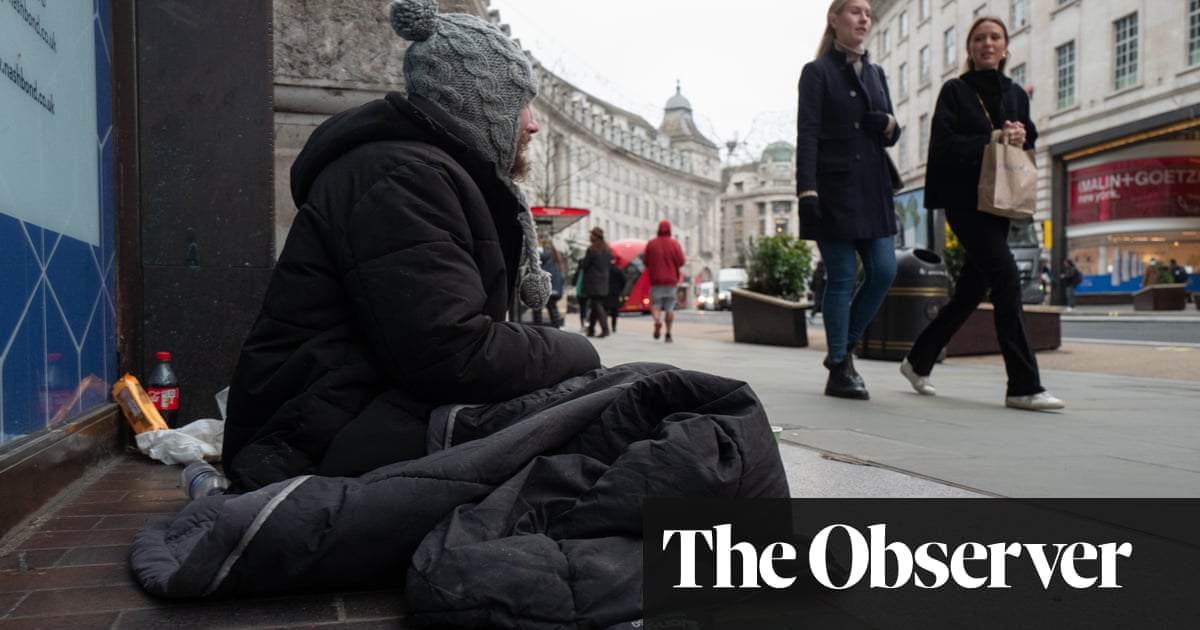- cross-posted to:
- [email protected]
- [email protected]
- cross-posted to:
- [email protected]
- [email protected]
The new study, funded by the government and carried out by King’s College London (KCL) and the homelessness charity Greater Change, will recruit 360 people in England and Wales. Half will continue to get help from frontline charities. The other half will get additional help from Greater Change, whose support workers will discuss their financial problems then pay for items such as rent deposits, outstanding debts, work equipment, white goods, furniture or new clothes. They do not make direct transfers to avoid benefits being stopped due to a cash influx.
Professor Michael Sanders, who runs KCL’s experimental government unit, said: “What we’re trying to understand is the boundary conditions for cash transfers. When does it work? For whom does it work? What are the amounts you need to give people in order to make it work?”
One of the first cash transfer schemes was in Mexico in 1997 and since then they have been used around the world. But most evidence is from low and middle-income countries, and there has been opposition from politicians and the public, who often believe people will spend the money unwisely. Last year researchers in Canada found that giving CA$7,500 (£4,285) to 50 homeless people in Vancouver was more effective than spending money housing them in shelters, and saved around CA$777 (£443) per person.



But if they spend that money “unwisely,” it’s fine. Sure, you can buy a $50 bottle of wine to get drunk with friends at dinner, but they get drunk on some cheap malt liquor because they’re fucking homeless and it sucks- or, heaven forbid, get addicted to opiates because they’re in pain and live in a country with a for-profit health care system- and they’re the problem.
Giving them cash is nice. Giving them homes would be nicer. If you house the homeless and also offer them addiction counseling and mental health care, most of them don’t end up back on the streets. Sure, some people will always be homeless, but most homeless people just need help to get out of that situation.
But money helps too. You can’t afford a phone or new clothes that don’t stink and look presentable? Or just basic toiletries? Good luck getting a job.
Also shelters don’t count and you cannot interpret refusal to stay at a shelter as “wanting to be homeless.”
I help out with a street outreach mutual aid group. I’ve not met a single person that wanted to be homeless but I’ve met tons of people that don’t want to fuck with shelters cause:
The streets are harsh, but in most cases the shelters are worse. Their only consistent benefit is that they are warm when it’s -20F out and if you keep your head down the police will probably not fuck with you.
Agreed 100% and the dog part is even more serious than people think because a lot of homeless women need their dog for protection. So their choice is then either temporary shelter and no protection once they’re back out on the streets or protection but no shelter.